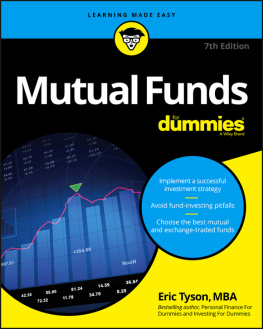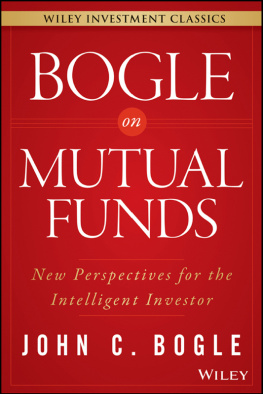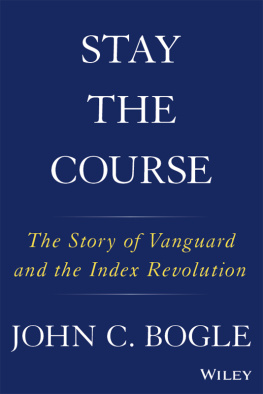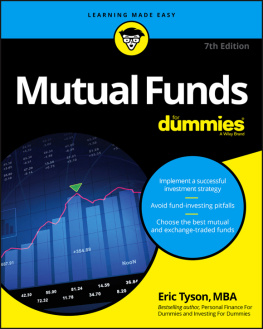Table of Contents
Guide
Pages
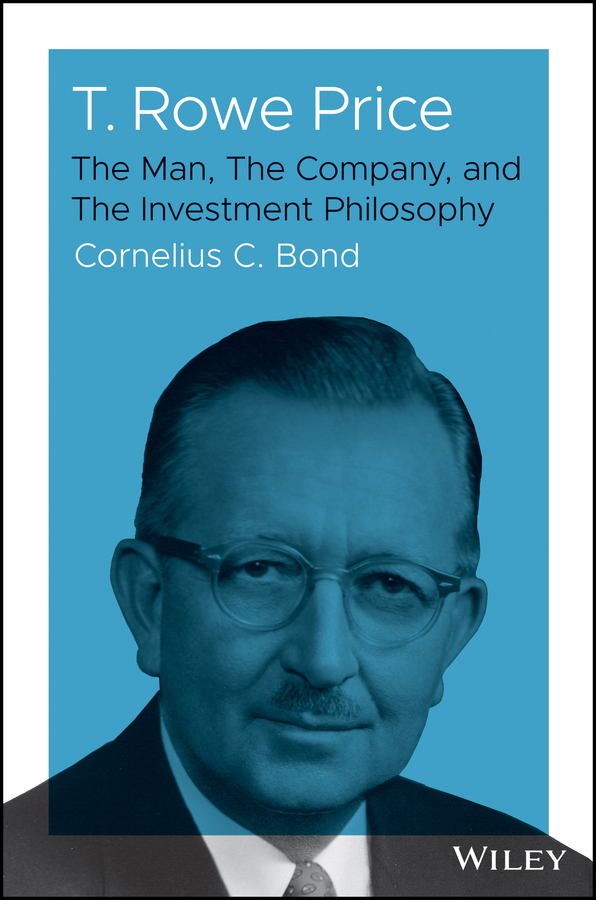
T. Rowe Price
The Man, The Company, and The Investment Philosophy
CORNELIUS C. BOND

Copyright 2019 by Cornelius C. Bond. All rights reserved.
Published by John Wiley & Sons, Inc., Hoboken, New Jersey.
Published simultaneously in Canada.
No part of this publication may be reproduced, stored in a retrieval system, or transmitted in any form or by any means, electronic, mechanical, photocopying, recording, scanning, or otherwise, except as permitted under Section 107 or 108 of the 1976 United States Copyright Act, without either the prior written permission of the Publisher, or authorization through payment of the appropriate percopy fee to the Copyright Clearance Center, Inc., 222 Rosewood Drive, Danvers, MA 01923, (978) 7508400, fax (978) 6468600, or on the Web at www.copyright.com. Requests to the Publisher for permission should be addressed to the Permissions Department, John Wiley & Sons, Inc., 111 River Street, Hoboken, NJ 07030, (201) 7486011, fax (201) 7486008, or online at www.wiley.com/go/permissions.
Limit of Liability/Disclaimer of Warranty: While the publisher and author have used their best efforts in preparing this book, they make no representations or warranties with respect to the accuracy or completeness of the contents of this book and specifically disclaim any implied warranties of merchantability or fitness for a particular purpose. No warranty may be created or extended by sales representatives or written sales materials. The advice and strategies contained herein may not be suitable for your situation. You should consult with a professional where appropriate. Neither the publisher nor author shall be liable for any loss of profit or any other commercial damages, including but not limited to special, incidental, consequential, or other damages.
For general information on our other products and services or for technical support, please contact our Customer Care Department within the United States at (800) 7622974, outside the United States at (317) 5723993, or fax (317) 5724002.
Wiley publishes in a variety of print and electronic formats and by printondemand. Some material included with standard print versions of this book may not be included in ebooks or in printondemand. If this book refers to media such as a CD or DVD that is not included in the version you purchased, you may download this material at http://booksupport.wiley.com. For more information about Wiley products, visit www.wiley.com.
Library of Congress Cataloging-in-Publication Data is Available:
ISBN 9781119531265 (Hardback)
ISBN 9781119531289 (ePDF)
ISBN 9781119531319 (ePub)
Cover Design: Wiley
Cover Image: Photograph by Bachrach
They come and they go with brief torrents of publicity and a moment or two of glory on the Lipper sheets. But few money managers, very few, stand the test of time. One of the handful that has is the Sage of Baltimore, 77yearold T. Rowe Price, Jr.
Why T. Rowe Price Likes Gold, Forbes, October 15, 1975
Foreword
Thomas Rowe Price, Jr. developed the Growth Stock Philosophy of investing in the 1930s. His innovative ideas captured the imagination of a Barron's editor who asked him to write a series of articles, published by the magazine in the spring of 1939. Adhering to this philosophy, he successfully invested his clients' money at his new firm for sixteen years. By 1950, his success gave him the confidence to introduce his first mutual fund, the T. Rowe Price Growth Stock Fund, consisting of large wellestablished growth companies. Ten years later, he started the New Horizons Fund to invest in emerging growth companies earlier in their life cycle. The Growth Stock Fund ultimately produced the best performance record through its first ten years of any U.S. equity mutual fund, with the objective of growth, income secondary. New Horizons had the best performance for its first five and ten years of any U.S. equity mutual fund. This is according to Investment Companies by Arthur Wiesenberger, the source for mutual fund performance data at that time.
The firm that bears his name has grown to become one of the largest companies in the business of actively managing money in the United States, with more than $1 trillion in assets under management as of March 31, 2018.
The T. Rowe Price Group today still operates under many of the basic tenets of the Growth Stock Philosophy, including a focus on the longer term, a strong emphasis on fundamental research, and the belief that knowing and respecting management are key factors in buying the shares of any company. In 2017, the firm continued its long record of outstanding performance with 81 percent of all mutual funds beating their respective Lipper averages on a total return basis over ten years, according to the firm's 2017 annual report.
An important contributor to this book is Robert (Bob) E. Hall, who worked with me at T. Rowe Price Associates for more than ten years, during which he was chairman of the Investment Committee of both the Growth Stock Fund and the New Era Fund. He later joined Brown Capital Management and cofounded the Small Company Fund. According to Bob, this fund has been run since inception under the tenets of Mr. Price's Growth Stock Philosophy. In 2015, Morningstar awarded Bob and his team the title of Domestic Stock Fund Managers of the year. The Morningstar announcement mentioned that the fund's performance was in the top ten percent of all U.S. mutual funds for the previous three, five and ten, years and since Morningstar was launched in 2011, as measured by Morningstar's fivestar rating.
It is apparent that this philosophy of managing money is as valid today as it was when Mr. Price introduced it eighty years ago. It will be discussed in detail in the following pages. Its deceptively simple concepts are based on common sense or horse sense, as his grandmother used to say. Mr. Price, however, was hardly an amateur investor and had more than a usual level of investment common sense. Little has been written about how this modest, ethical man managed to build one of the largest U.S. companies in the business of managing mutual funds. Yet his record of stock market performance over his long career places him among the top money managers of the twentieth century.
He also had an amazing ability to forecast the longterm trends in society, politics, and the economy that impacted the stock market. His analysis of these trends allowed him to take positions at favorable prices well before other investors became aware that a change had occurred. He believed that a serious investor should consider these longterm trends from time to time and adjust his investments accordingly. Mr. Price issued his last detailed forecast in 1965, in which he foresaw the coming runaway catastrophic inflation that did, in fact, occur in the 1970s. He started the New Era Fund to produce excellent results in this environment, wherein gold went up more than twenty times and mortgage rates exceeded eighteen percent. A suggested outlook for the next decade, based on the use of Mr. Price's longheld ideas and concepts as well as the author's inputs of current data and major changes, is discussed in detail, and brought up to date, in .
A memorial in the November 21, 1983, issue of Forbes stated: [Price] never achieved the influence of the late Benjamin Graham because, unlike Graham, Price was not an articulate man. He hated to give speeches and was not good at delivering them. He was impatient with reporters who failed to quickly understand his ideas. His writings, however, were clear and well thought out.


